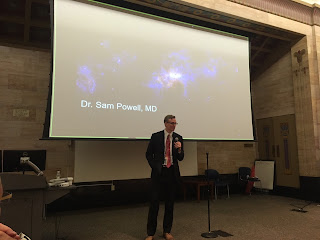 There is mounting evidence that discontinuing contact precautions for endemic MRSA and VRE infections atop a robust horizontal infection prevention platform does not jeopardize infection rates and may cause less harm.
There is mounting evidence that discontinuing contact precautions for endemic MRSA and VRE infections atop a robust horizontal infection prevention platform does not jeopardize infection rates and may cause less harm.Elise Martin et al report a significant decrease in non-infectious adverse events after discontinuing contact precautions for MRSA and VRE at UCLA Medical Center.
Using an interrupted time series analysis methodology, we recently reported no negative impact of discontinuing contact precautions for MRSA and VRE on already decreasing trends of all device associated infections (including MRSA and VRE).
Since we do not perform active surveillance screening, critics claim that we may be negatively impacting the colonization burden. Also, as we do not perform post discharge surveillance of our patients (is that practical?), critics claim that patients colonized at our institution could manifest infection elsewhere. This is possible yet not probable. As VCU Health is the major safety net hospital of central Virginia, it seems unlikely that our patients would seek care at a private, suburban hospital.
The evidence is mounting for a paradigm change, or at least, for a paradigm pause: for us to thoroughly question the efficacy of contact precautions to control endemic MRSA and VRE.



















